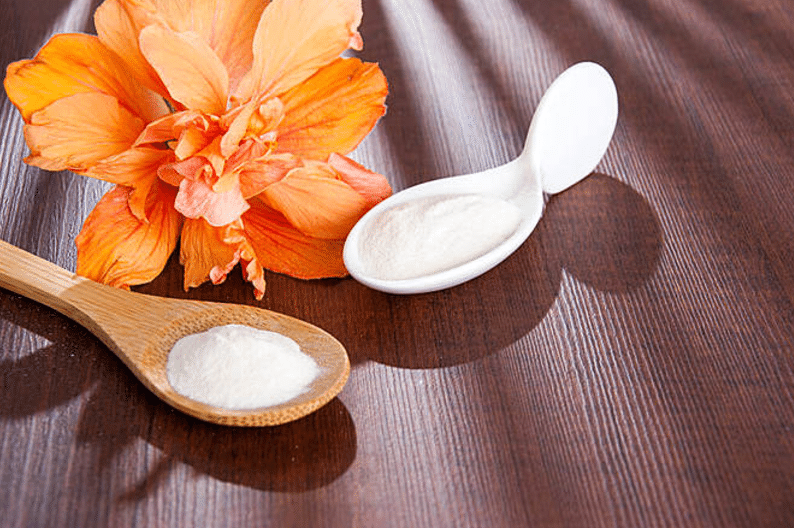What is L-Citrulline ?
What is L-Cysteine Hydrochloride ?
L-Citrulline and L-Cysteine Hydrochloride are both amino acid derivatives that offer distinct benefits in the body. Here’s a comparison of the two:
1. L-Citrulline:
Type: Non-essential amino acid.
Structure: A cyclic amino acid, part of the urea cycle.
Functions:
- Nitric Oxide Production: L-Citrulline is a precursor to L-arginine, which is then converted into nitric oxide (NO). Nitric oxide helps with vasodilation (widening of blood vessels), which improves blood flow and oxygen delivery to tissues.
- Exercise Performance: L-Citrulline supplementation is commonly used to enhance exercise performance, particularly for endurance athletes. It helps reduce fatigue and increase time to exhaustion during physical activity.
- Recovery: It may reduce muscle soreness (DOMS – delayed onset muscle soreness) after exercise, helping with faster recovery.
- Ammonia Detoxification: In the urea cycle, L-Citrulline helps remove ammonia from the body, which can build up during intense exercise.
Usage in Supplementation:
- Athletic Performance: Often used by athletes and bodybuilders to improve performance, particularly in high-intensity training and endurance sports.
- Blood Flow & Endurance: Effective for improving vascularity and promoting better blood flow.
- Recovery: Reduces muscle soreness and speeds up recovery after intense physical exertion.
2. L-Cysteine Hydrochloride:
Type: Semi-essential amino acid.
Structure: L-Cysteine is a sulfur-containing amino acid. The hydrochloride form (L-Cysteine HCl) is a stable, water-soluble salt form of cysteine.
Functions:
- Antioxidant Production: L-Cysteine is a precursor to glutathione, one of the body’s most important antioxidants. Glutathione plays a critical role in protecting cells from oxidative damage and maintaining cellular health.
- Detoxification: It helps in the detoxification process by neutralizing free radicals and aiding in the removal of toxins.
- Protein Synthesis: Like all amino acids, L-Cysteine is involved in the synthesis of proteins.
- Skin Health: L-Cysteine is sometimes used in skin care, as it supports the production of keratin, a key protein in skin, hair, and nails.
- Respiratory Health: Cysteine can help thin mucus and has been used in conditions like chronic bronchitis to promote easier mucus clearance.
Usage in Supplementation:
- Antioxidant Support: L-Cysteine is often used for boosting glutathione levels, especially in detox regimens or for oxidative stress management.
- Skin, Hair, & Nail Health: Cysteine supports the structure and health of hair, skin, and nails.
- Lung Health: It is sometimes used in the treatment of respiratory conditions, as it can help break down mucus.
- Recovery & Immune Support: Its antioxidant properties are also beneficial for recovery from illness or stress, as it helps reduce oxidative damage and supports immune function.
Key Differences:
- Primary Functions:
- L-Citrulline: Focuses on improving blood flow, nitric oxide production, exercise performance, and recovery.
- L-Cysteine Hydrochloride: Primarily involved in antioxidant production (via glutathione), detoxification, and skin/hair health.
- Metabolic Pathways:
- L-Citrulline: Primarily involved in the urea cycle and the production of nitric oxide, affecting vascular health and endurance.
- L-Cysteine Hydrochloride: Involved in antioxidant production (glutathione), detoxification, and supporting cellular health.
- Supplementation:
- L-Citrulline: Often used by athletes to improve performance, increase endurance, and reduce muscle soreness.
- L-Cysteine Hydrochloride: Used for antioxidant support, skin health, detoxification, and sometimes lung health.
- Common Uses:
- L-Citrulline: Performance enhancement, improved circulation, faster recovery, reduced fatigue.
- L-Cysteine Hydrochloride: Glutathione boosting, detoxification, respiratory health, skin/hair support.
Which One to Choose?
- L-Citrulline would be your go-to if you’re looking to improve exercise performance, increase blood flow, or support muscle recovery.
- L-Cysteine Hydrochloride is more suitable if you’re focused on enhancing antioxidant defense (via glutathione), supporting detoxification, or improving skin, hair, and nail health.
Both have powerful benefits, but they serve different physiological roles. Depending on your goals (exercise, detox, skin health, etc.), you might choose one over the other—or even use both as part of a more comprehensive supplementation strategy.




